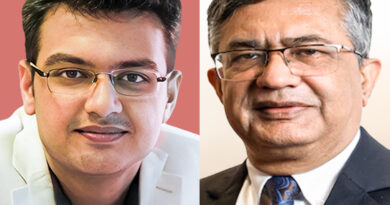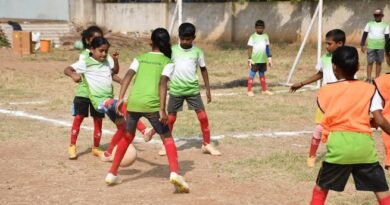Need for Four Key Reforms to Prioritise Health in Schools: Dr Rahul Mehra, India’s UNESCO Chair National Representative
With rising cases of mental health disorders, lifestyle diseases, and substance abuse among young people, India faces a growing public health crisis that begins early in life. Schools, where children spend a significant part of their formative years, play a crucial role in shaping lifelong health behaviours. However, the current education system largely limits health education to physical activities such as sports and yoga, leaving critical aspects like mental resilience, emotional stability, and social well-being unaddressed.
 |
Dr Rahul Mehra, India’s National Representative for the UNESCO Chair on Global Health & Education and Executive Chairman, Tarang Health Alliance
Highlighting these concerns, Dr Rahul Mehra, India’s National Representative for the UNESCO Chair on Global Health & Education and Executive Chairman of Tarang Health Alliance, has called for urgent reforms to ensure a more comprehensive approach to school health education. Following a review of the National Curriculum Framework (NCF), he has put forward four key recommendations to make health a priority in schools, emphasising that without these changes, young learners will remain ill-equipped to navigate the complex challenges of modern life.
Dr Mehra’s first recommendation is to expand the curriculum beyond physical fitness and integrate structured discussions on mental health, emotional well-being, and social skills. “Topics such as self-esteem, stress management, decision-making, and relationship-building must be embedded into everyday learning,” he said. Secondly, he stresses the need to address contemporary health challenges such as air pollution, drug abuse, and digital addiction, ensuring that health education remains relevant to the realities faced by students today.
As a next step, and as his third vital recommendation, Dr Mehra calls for specialised training for health educators as well. “Teachers must be equipped with structured materials and clear learning objectives to effectively impart knowledge on holistic well-being,” he said. Lastly, he advocates for a collaborative approach to health education, urging schools to actively involve parents, local communities, and public health experts to create a supportive ecosystem that extends beyond the classroom.
Dr Mehra draws attention to successful global models, such as Finland and Canada, where comprehensive health education is a core part of the school system. Finland’s education framework seamlessly integrates physical, mental, and emotional well-being, reducing student stress and fostering creativity. Canada’s Comprehensive School Health (CSH) model, through initiatives like the “Healthy Schools Certification” programme, ensures that student well-being is prioritised at multiple levels, involving parents, educators, and policymakers.
With curriculum revisions occurring only once every 15-20 years, Dr Mehra stresses that India has a rare chance to implement these much-needed reforms now. By embedding a truly holistic approach to health education, schools can play a transformative role in shaping a healthier and more resilient generation. As policymakers and educators plan the future of India’s education system, he emphasises that health must no longer be an afterthought, it must be at the very heart of learning.
Tarang Health Alliance, led by Dr Mehra, is a non-profit organisation working to promote health education and preventive healthcare across India. Since 2016, it has been raising awareness and developing programmes to improve children’s physical and mental well-being. The organisation advocates for compulsory health education to help shape policies that equip children with the knowledge and skills for a healthier future. It has successfully implemented school health programmes in cities like Delhi NCR, Chandigarh, and Jaipur. In 2024, the initiative expanded to 30 schools, focusing on both student education and parental involvement for a more comprehensive approach to well-being.




